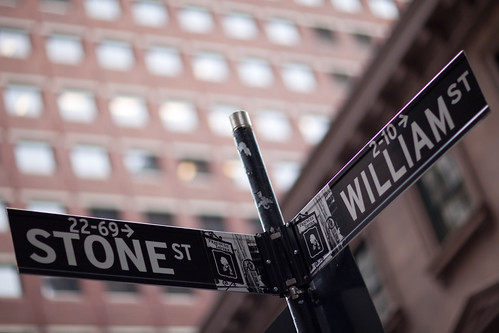Lying to Congress
Let’s start with simplest charge: Of course Goldman execs lied to Congress. Everyone lies to Congress. Congress lies to Congress. Who outside of Charlie Sheen wants to air dirty laundry in front of the whole world? Yes I believe Goldman lied but not in they way RS thinks they did. Yes, GS knew these bonds were crappy. Yes, they could have done a better job disclosing all the risks. But as a former CDO manager and investor, I know to review, research, and analyze CDOs independently of Rating Agencies.
Selling Crappy CDOs to Unwary clients
Goldman sold CDOs they knew to be crappy to investors who took the opposite side of the bet. Rating Agencies blessed these structures with AAAs. And why is this a crime? Isn’t the motto on the street “Buyer Beware”? The deals would perform or underperform based on the underlying bonds making up the CDOs. Is anyone claiming GS hid which bonds were included? No. Despite RS’s assertion GS knew these bonds were crap, this does not constitute a crime or a failure of disclosure. These bonds were not sold with a guarantee nor did Goldman ever say these bonds had no risk. Heck, even the rating agencies blessed these structures by allowing 75% of the cash flow to be rated AAA.
To further the car analogy favored by RS, imagine you want to buy a fleet of 100 cars from GS Rental Company. You also have at your disposal the repair (i.e performance) history of each and every car from a variety of third party vendors named Intex, Core Logic and Lewtan. However, you rely on Moody’s Auto Rating service to tell you that only 15 cars are likely to go bad in the worst case scenario. You decided to buy 75 cars with GS Rental company keeping the first two cars that go bad. Crime or out-and-out stupidity?
Further, doesn’t anyone remember all the other products investment banks have sold which blew up shortly after origination? I do. Ask me someday about 125% Mortgages, Manufactured Housing, Airplane Lease ABS, Tech Stocks, and so on. Investment banks only sell what investors are willing to buy. Same with the CDOs. Good salesmen know how to sell. GS has very, very good salesmen. Frankly, any investor who trusts a Wall Street salesman and doesn’t ask the tough questions should go work for a feel-good non-profit. Buying investment products you don’t understand should be a crime.
Crime Spree and Key Stone Cop Regulators
Lastly, cutting through RS’s massive hyperbole, I’m trying to figure out what constituted the biggest crime spree of all time. Fraudulent subprime mortgage backed securities issuers? CDO managers? Fraudulent mortgage originators? Fraudulent borrowers? Fraudulent Rating Agencies? Incompetent and toothless regulators? Lazy investors?
Every part of the business created the housing meltdown. Borrowers who over levered or lied to get access to housing they couldn’t afford. Real estate agents over sold housing to drive up commissions. Home appraisers inflated valuations at the behest of mortgage brokers. Mortgage brokers, paid on commission, forged or instructed borrowers to lie to get access to as much money as possible. Loan officers, paid based on production, ignored problems in loan origination files. MBS issuers ignored prudent underwriting standards and due diligence with no regulatory oversight. Regulators didn’t have the authority to stop this train wreck nor the poltical backbone to do so. Rating Agencies relied on outdated models and Wall Street pressure. Investors didn’t do the work necessary to understand the risks.
This “crime spree” wasn’t a drive by a Moriarty-esque criminal mastermind but a Confederacy of Dunces.
RS says the “banks were closely monitored by a host of federal regulators, including the Office of the Comptroller of the Currency, the FDIC, and the Office of Thrift Supervision.” I call bullshit. The OTS actively sought more regulatees by stating to them “we are the kinder gentler regulator”. The biggest blow-ups were OTS governed (Washington Mutual, Bear Stearns, Lehman Brothers, Indy Mac, and Countrywide). The OCC wasn’t much better and the FDIC was busy laying off personnel because the world was going well. The Fed’s chief drug lord (Greenspan) was pushing housing as the great engine of the US economy.
Lastly….
I’m sick of Rolling Stone’s hyperbole. If GS had a $6B bet on the housing market then they were a little more than 1/2 a percent of the total investors in the market. They were small potatoes, and because they were small they survived the meltdown like cockroaches in a nuclear winter.
 A while back I asked seasoned financial reporter/investigator Roddy Boyd if I could review his book, Fatal Risk, about the rise and epic fall of AIG. I finally finished it last week and while I didn’t think I’d ever say this, AIG was a REALLY ridiculously interesting story and one I absolutely recommend reading to anyone and everyone even tangentially interested in business, finance, investing, and economics. This is truly one of the most important lessons in history, and as they say, those who fail to learn from history are doomed to repeat it…
A while back I asked seasoned financial reporter/investigator Roddy Boyd if I could review his book, Fatal Risk, about the rise and epic fall of AIG. I finally finished it last week and while I didn’t think I’d ever say this, AIG was a REALLY ridiculously interesting story and one I absolutely recommend reading to anyone and everyone even tangentially interested in business, finance, investing, and economics. This is truly one of the most important lessons in history, and as they say, those who fail to learn from history are doomed to repeat it…